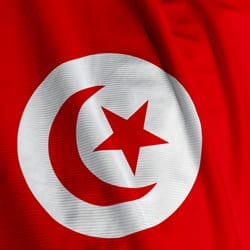Associational life tends to change in fundamental ways with the fall of dictatorships and the emergence of democratizing regimes, which depend on the existence of multiple constituencies. Following this pattern, women’s associations in Tunisia, limited to two independent groups under the authoritarian Ben Ali regime (1987-2011), proliferated after the 2011 Jasmine Revolution of the Arab Spring. At the same time, the two long-standing women’s associations adapted to the new conditions. In this blog, we discuss the transition of women’s associations from the Ben Ali regime to post-revolution Tunisia.
Two long-standing women’s associations
Two long-standing women’s associations, the Association Tunisienne des Femmes Démocrates (ATFD) and the Association des Femmes Tunisiennes pour la Recherche et le Développement (AFTURD), were both officially recognized as independent women’s associations by the Tunisian government in 1989, two years after Ben Ali became president in a bloodless coup in 1987. Although they were not under state sponsorship, they nevertheless needed state permission to exist, as did all other associations in Tunisia at the time.
The Ben Ali regime used essentially the same strategy with all civil associations, allowing them to exist but at the same time closely controlling their activities and public influence. The regime presented itself to the international community as friendly towards women’s rights, a stance that was especially useful while it faced Islamic fundamentalist threats. At the same time, the Ben Ali regime restricted the activities of all independent associations that could pose a threat to its authority. The administration adopted a carrot-and-stick strategy, common in authoritarian regimes, which did not entirely stifle associative life in Tunisia. No Islamist women’s associations existed in the open at the time (they were underground and in exile) since the regime did not allow any Islamist association to operate in the country.
During the Ben Ali regime, members of the ATFD used any venues they could to make their voices heard, and they formed alliances with like-minded secular groups such as the national labor union (Union Générale des Travailleurs de Tunisie) and the Tunisian League for Human Rights (Ligue Tunisienne des Droits de l’Homme) to represent women’s issues.
Since the 2011 Jasmine Revolution of the Arab Spring, the ATFD and AFTURD have adapted to new conditions by forming new alliances and joining coalitions. They have remained at the forefront of gender politics and played a major role in debates about the language on gender in the new constitution adopted in 2014. Welcoming the opportunity to work with new women’s associations that emerged after 2011, and with the financial and political support of the state and international donors, the ATFD and AFTURD are collaborating on issues of mutual interest such as violence against women, women’s political representation and fighting religious extremism.
New women’s associations in post-revolution Tunisia
Since the 2011 revolution, Tunisian women have created between 183 and 300 new women’s associations. These associations are diverse and vary in size and organizational style, and they include Islamist and secularist voices that seek to advance women’s political, social, legal and economic interests. While participating in coalitions on a number of issues, new women’s associations have also carved a space for themselves in supporting particular groups of women and engaging marginalized women and youth. They target established businesswomen, political candidates, young professionals, artists, survivors of domestic violence and marginalized youth. Although these associations are characterized as “secular leaning” or “Islamist leaning,” they all voice a commitment to serving Tunisian women. In actuality, “Islamist” and “secularist” in the context of Tunisia today should not be understood as a dichotomy but rather as a spectrum of ideological positions held by women’s associations and political parties.
For example, the Islamist-leaning Tounissiet established the Women’s Leadership Academy to prepare women to run for office in local and legislative elections. The secular-leaning Ligue des Électrices Tunisiennes (LET) lobbied for gender parity laws during the 2011 and 2014 elections and regularly holds training sessions for female political candidates, including training on political violence against female candidates. The secular-leaning Aswat Nissa created the Women’s Political Academy to provide professional training opportunities for women on corruption, budgeting, political participation and live debate preparation. The Femmes et Leadership also concentrates on supporting businesswomen and economic empowerment.
In addition, many feminist organizations work with both women and youth to help integrate these two groups into society and prevent their marginalization. The secular-leaning Free Sight Association works with marginalized youth on preventing violent extremism in the interior of the country, while Mobdiun works with similar groups in Le Kram, in the heart of Tunis. Mowatana & Tawassol provides artists and youth with opportunities to present their work in galleries that foster inclusion in an artistic community.
Many women’s associations also attempt to build bridges across ideological and religious lines. For example, in June 2017, the Islamist think tank Afkar Nissa sponsored a dialogue on women’s rights that included Bouchra Belhaj Hamida, a secular MP and former ATFD president; Mehrezia Labidi, an Islamist Party MP; and a religious scholar.
Conclusion
While the ATFD and AFTURD remain highly active on women’s issues in post-revolutionary Tunisia, they are no longer working on their own as they did prior to the fall of the authoritarian Ben Ali regime in 2011. They are now operating in partnership with newly emerged associations. The new associations cover a broad range of issues and address the concerns of women in diverse constituencies. Many are open to a dialogue between Islamist and secular women, and some are actively engaged in efforts to construct bridges between ideological tendencies.
Mounira M. Charrad, Ph.D., is a nonresident fellow with the Women’s Rights in the Middle East Program and an associate professor of sociology at The University of Texas at Austin. Her research focuses on state formation, colonialism, law, citizenship, kinship, gender politics and women’s rights.
Maro Youssef is a doctoral student in sociology at The University of Texas at Austin. Her research focuses on gender politics, democratization and civil society.
